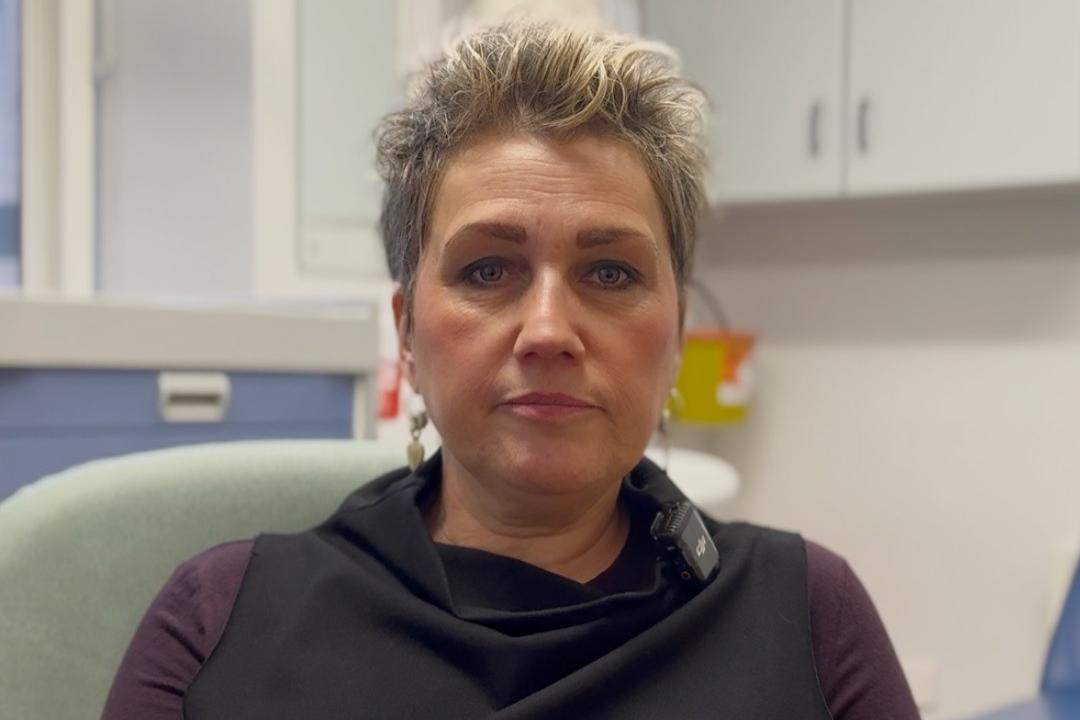The National Health Service (NHS) in the United Kingdom has issued a crucial advisory concerning the management of COVID-19 symptoms. Individuals are encouraged to seek medical attention if they experience a specific symptom lasting for five days or longer, indicating a potential escalation in the severity of the illness. This announcement comes as recent data from the UK Health Security Agency (UKHSA) indicates a slight decline in COVID-19 cases, although the infection continues to be classified at “medium levels.”
According to the latest statistics, hospital admissions due to COVID-19 have decreased marginally, with positivity rates dropping from 13.1 percent to 12 percent over the past week. The UKHSA has identified individuals aged 85 and older as being at the highest risk of requiring hospital care due to the virus. Given these circumstances, the NHS emphasizes the importance of recognizing symptoms that may necessitate professional medical intervention.
Guidance on Symptom Monitoring
While many COVID-19 patients see their symptoms resolve in a relatively short time, persistent symptoms warrant further action. The NHS advises individuals to request an “urgent” appointment with their general practitioner or to contact the NHS helpline by calling 111 if symptoms last five days or longer. This protocol applies particularly when a high temperature, defined as 38C or above, persists despite the use of paracetamol. Individuals may also notice an elevated temperature in their chest or back.
Other concerning symptoms include shivering, perspiration, or skin that feels warm and flushed. The NHS outlines several scenarios in which contacting 111 is advisable:
- If you or your child have COVID-19 symptoms and are unsure how to proceed.
- If the symptoms are worsening or not improving.
- If additional symptoms arise, such as a rash, loss of appetite, or weakness.
- If a child under three months has a temperature of 38C or higher.
- If a child aged three to six months has a temperature of 39C or higher.
Recognizing COVID-19 Symptoms
In addition to a high temperature, other common symptoms of COVID-19 include:
- A new, continuous cough—defined as coughing frequently for more than an hour or having three or more coughing episodes within 24 hours.
- A loss or alteration in the sense of smell or taste.
- Shortness of breath.
- Fatigue or exhaustion.
- Aching body, headache, sore throat, or nasal congestion.
- Loss of appetite, diarrhoea, nausea, or vomiting.
The NHS notes that these symptoms can resemble those of other illnesses, such as colds or flu. While most individuals recover within weeks, some may experience prolonged symptoms indicating a more severe form of the illness.
For those exhibiting symptoms of COVID-19, the NHS recommends remaining at home and minimizing contact with others. Individuals should avoid returning to work, school, or childcare if they or their child has a high temperature or do not feel well enough to engage in regular activities. Once symptoms have improved or the individual no longer has a high temperature, they may resume their usual activities. If a child exhibits mild symptoms like a runny nose or sore throat but feels well enough, they can still attend school or childcare.
Monitoring symptoms and recognizing when to seek help is vital for managing COVID-19 effectively. The NHS continues to provide guidance to ensure public health and safety as the situation evolves.







